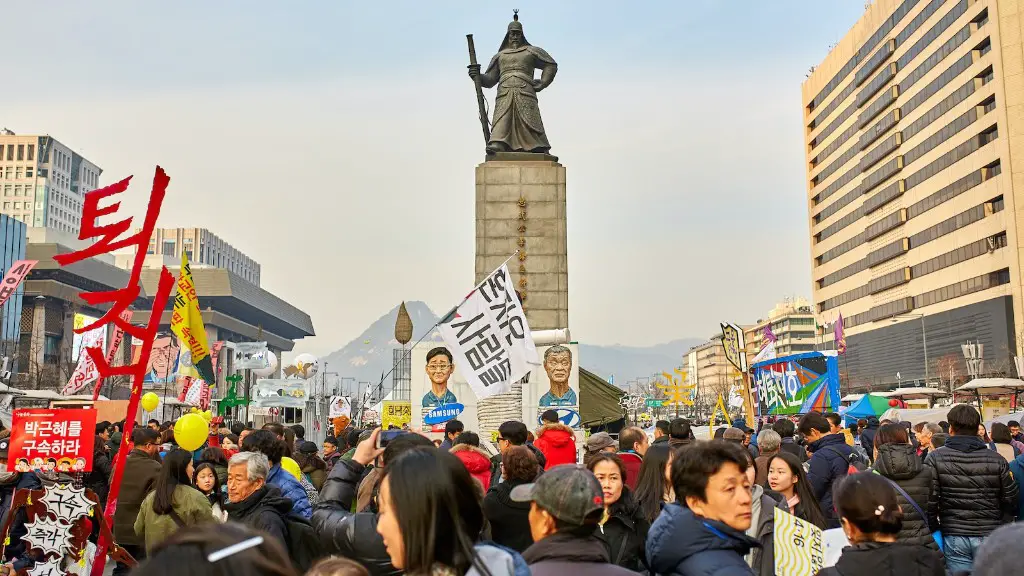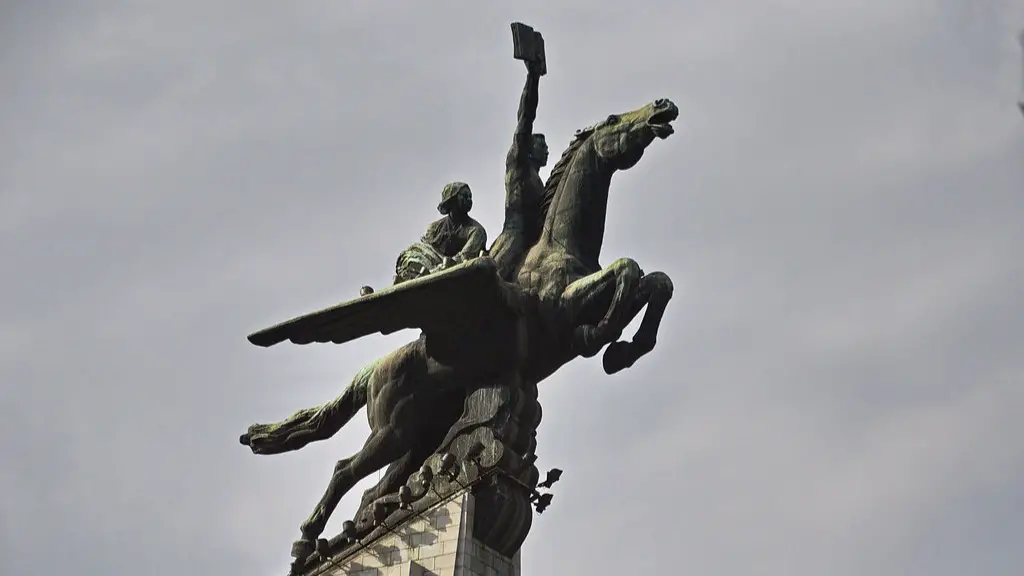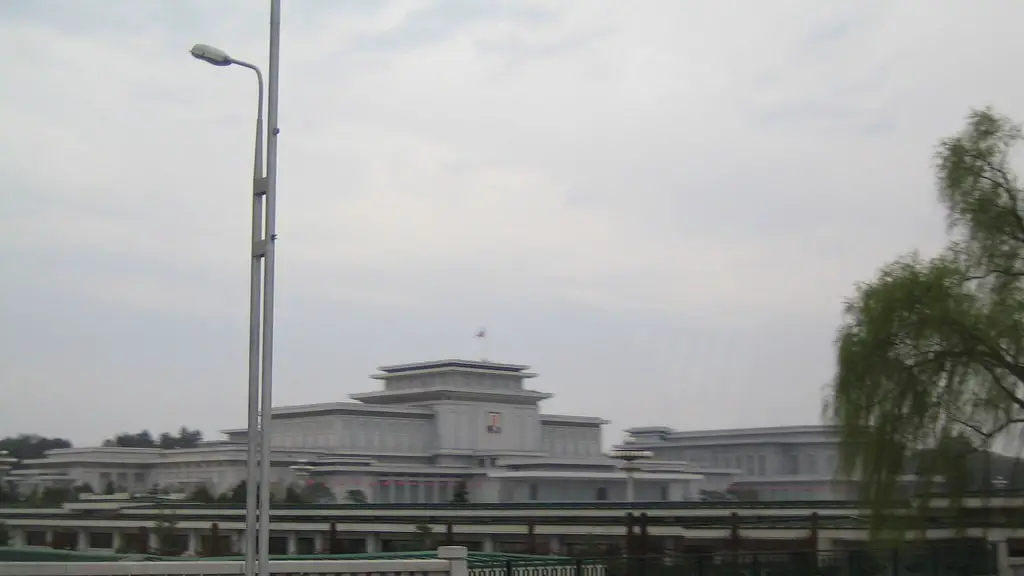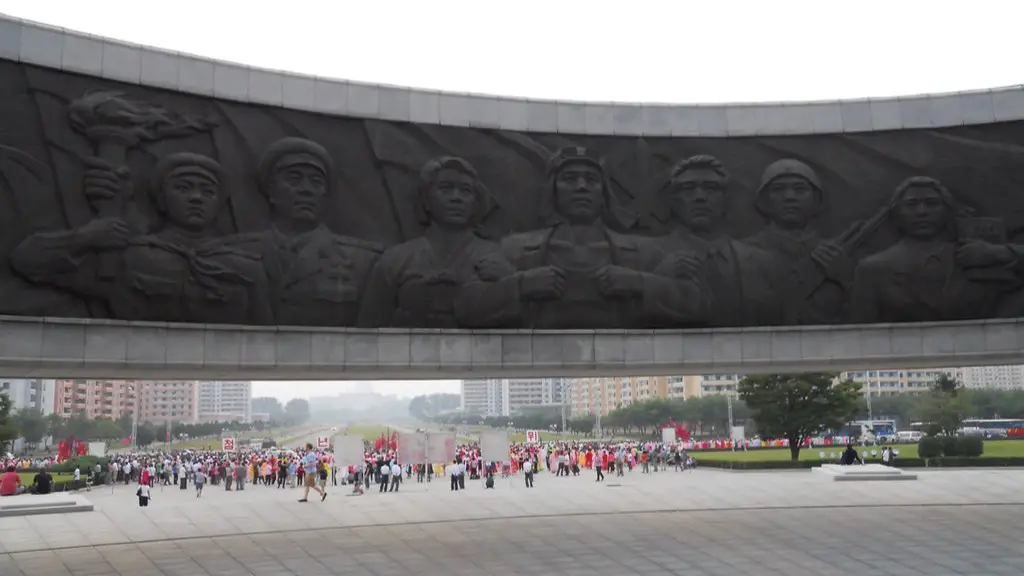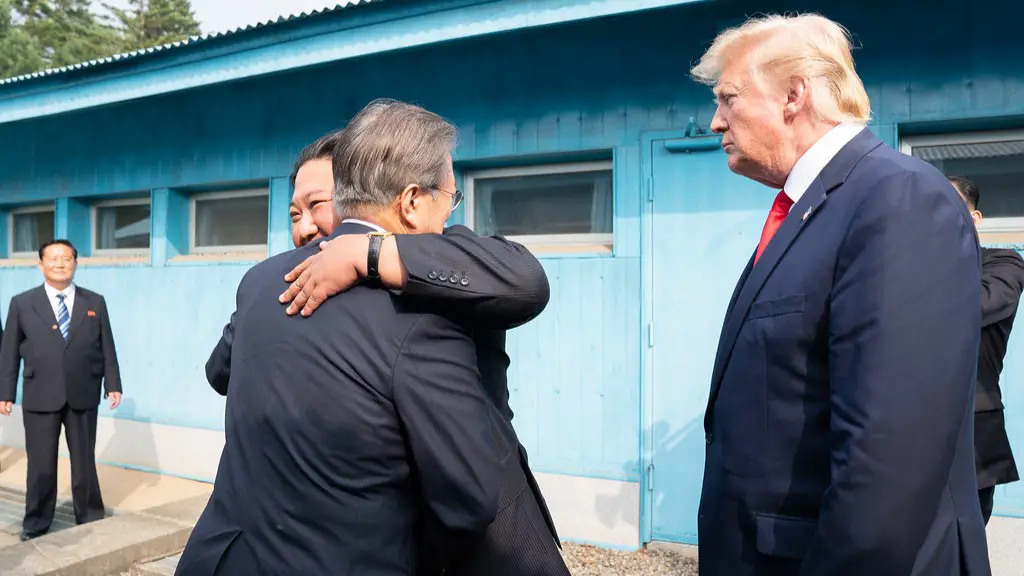Since the Korean War, North Korea has been cut off from the rest of the world. In recent years, however, North Korea has begun to open up to the outside world. In response to North Korea’s nuclear program, the United Nations has placed sanctions on North Korea. These sanctions have limited North Korea’s ability to trade with the rest of the world. The hope is that these sanctions will force North Korea to abandon its nuclear program.
North Korea is a highly sanctioned country. The United Nations, the United States, and the European Union all have sanctions against North Korea. These sanctions are in place because of North Korea’s nuclear program and human rights abuses.
Is North Korea sanctioned by OFAC?
The Office of Foreign Assets Control’s (OFAC’s) current North Korea sanctions program began in 2008 when the President issued Executive Order (EO) 13466. EO 13466, as amended by EO 13722 of March 16, 2016, authorizes the imposition of sanctions on persons determined to have engaged in, facilitated, or been complicit in actions or policies that threaten the peace, security, or stability of North Korea or undermine the international nuclear non-proliferation regime.
The Executive Orders 13722 and 13810 impose additional sanctions against North Korea in response to its nuclear and ballistic missile programs. The sanctions target North Korean government entities and individuals, as well as businesses and financial institutions that support the North Korean government. The Executive Orders also prohibit certain transactions with North Korea, including the import of North Korean goods, services, and technology.
Why North Korea is in sanctions list
There are a variety of reasons why sanctions may be imposed. In the case of the 2006 UNSC resolution, the sanctions were imposed in response to the DPRK’s nuclear test on 9 October 2006. The UNSC felt that this test posed a threat to international peace and security, and thus took action to try and dissuade the DPRK from pursuing further nuclear activity.
In response to North Korea’s nuclear and ballistic missile programs, the United States has imposed a series of sanctions on the country. These sanctions are designed to restrict North Korea’s access to the goods, services, and technology that it needs to continue its nuclear and missile programs.
One of the most recent sanctions is Executive Order 13722, which prohibits the exportation or reexportation, from the United States, or by a United States person, of any goods, services, or technology to North Korea. This prohibition applies to any transaction that is subject to the jurisdiction of the United States, even if the transaction takes place outside of the United States.
If you are a United States person, or if you are engaged in a transaction that is subject to the jurisdiction of the United States, you should be aware of this prohibition and ensure that you do not violate it.
Which country is sanctioned by OFAC?
The Office of Foreign Assets Control (OFAC) is part of the United States Treasury Department. It is responsible for administering and enforcing economic and trade sanctions against targeted foreign countries, terrorists, international narcotics traffickers, and those engaged in activities related to the proliferation of weapons of mass destruction.
The OFAC administers a number of different sanctions programs, each of which targets a specific country or region. The most comprehensive sanctions are those that are imposed on countries that have been designated as “comprehensively sanctioned countries.” These countries are Cuba, Iran, Syria, and the regions of Ukraine (Crimea, Donetsk, and Luhansk).
What is North Korea’s main source of income?
agricultureNorth Korea’s main source of income is agriculture. In 2013, it was estimated that the agricultural sector accounted for around 25% of the country’s GDP. However, the sector only employs around 15% of the country’s workforce.
What is the richest country in the world?
QatarAdvertisementRankCountryGDP-PPP ($)1Qatar132,8862Macao SAR114,3633Luxembourg108,9514Singapore103,181104 more rows•Aug 3, 2020
Why is North Korea so economically weak?
Since 1948, North Korea has been a centrally planned economy, where the roles of market allocation and price discovery are relegated to the state planning organization and prices are determined by the state. … North Korea’s economy is struggling because of a lack of access to foreign markets and investment.
What is North Korea’s land used for?
Agriculture and fishing are North Korea’s most important land uses. Arable land comprises about 19% of the total land area. The country relies on imports to meet most of its
Which countries are under U.S. sanctions?
The US government has placed sanctions on a number of countries around the world. These sanctions are in place in order to try to pressure the government or entities in those countries to change their behavior. The sanctions typically involve limiting or prohibiting economic activity with the US.
The representatives of the European Union and United States say that they will only lift the sanctions against Russia once Moscow has fulfilled the Minsk II agreements. As of April 2022, the sanctions are still in effect.
What does it mean if a country puts a sanction on another country
Economic sanctions are a powerful tool that can be used to influence the behavior of another country. They are usually imposed in response to some type of major event or decision that the international community disapproves of. For example, economic sanctions were imposed on Iraq after it invaded Kuwait in 1990.
Sanctions can take many different forms, but they all essentially involve restricting or limiting economic activity in some way. This can mean anything from banning the import of certain goods to freezing the assets of individuals or businesses.
While economic sanctions can be effective in changing the behavior of a country, they often come at a cost to the citizens of that country. Sanctions can cause major disruption to the economy, and people can suffer from shortages of essential goods and services. They can also lead to an escalation of tensions, which can sometimes result in military conflict.
When travelling to North Korea, it is important to be aware of the strict laws about what you can bring into the country. It is illegal to bring in religious, pornographic or political items, and all published material and electronic devices must be declared when you arrive. It is also illegal to knowingly or unknowingly possess items that breach North Korean law.
Is North Korea friendly to USA?
Although there have been some periods of relative calm, such as the so-called “Agreed Framework” in the 1990s, relations between North Korea and the United States have been largely hostile and tense. The United States does not recognise North Korea as a legitimate government, and instead recognises South Korea as the sole legitimate government of the Korean peninsula. North Korea, for its part, views the United States as a key enemy, and has repeatedly threatened both military and nuclear action against the US and its allies. In recent years, North Korea has made significant progress in its nuclear weapons program, despite international condemnation and sanctions. It is unclear how the current impasse can be resolved, but it seems unlikely that relations between the two countries will improve anytime soon.
The treaty between China and North Korea is important for both countries. China is often considered to be North Korea’s closest ally, and the treaty helps to solidify that relationship. The treaty provides for mutual aid and co-operation, and helps to ensure that both countries are on the same page when it comes to defense.
Is North Korea a part of NATO
North Korea is not a member of NATO, nor is it a candidate for membership. NATO is a military alliance of countries in the North Atlantic region, and North Korea is located in East Asia.
In retaliation for the United States of America’s imposition of economic sanctions on multiple countries, those countries have imposed economic sanctions on the United States of America. This has led to a decrease in trade and investment between the countries involved and has put strain on their relations.
What countries is the U.S. not allowed to do business with?
The Bureau of Industry and Security (BIS) is responsible for enforcing sanctions against Cuba, Iran, North Korea, and Syria pursuant to the Export Administration Regulations (EAR). These sanctions are designed to protect US national security and foreign policy interests.
There are a variety of reasons why countries may choose to sanction another country. Some of the most common reasons include:
1. To express disapproval of the country’s actions or policies
2. To pressure the country to change its actions or policies
3. To punish the country for its actions or policies
4. To prevent the country from carrying out its actions or policies
5. To protect the safety of citizens or interests
6. To promote peace or stability
7. To uphold international law
Economic sanctions are a common type of sanction and can take many different forms, such as trade embargoes, financial restrictions, or prohibitions on exports. Diplomatic sanctions are another common type of sanction and can involve measures such as recall of ambassadors, expulsion of diplomats, or severance of diplomatic relations. Military sanctions are less common, but can involve things such as arms embargoes, prohibitions on training, or bans on military exports. Sport sanctions are typically used to punish countries for political reasons and can involve things such as bans on hosting or participating in international events. Sanctions on the environment are usually used to punish countries that have caused environmental damage or have violated international environmental agreements. Sanctions on individuals are typically used to target individuals involved in human rights
Final Words
The United States has placed sanctions on North Korea since the 1950s in response to the country’s nuclear program and human rights record.
North Korea is sanctioned by the United Nations in response to its human rights violations and nuclear weapon tests. These sanctions have severely limited North Korea’s economic growth and led to widespread hunger and suffering among its citizens. There is no evidence that these sanctions have changed North Korea’s behavior, and they are unlikely to do so in the future.
